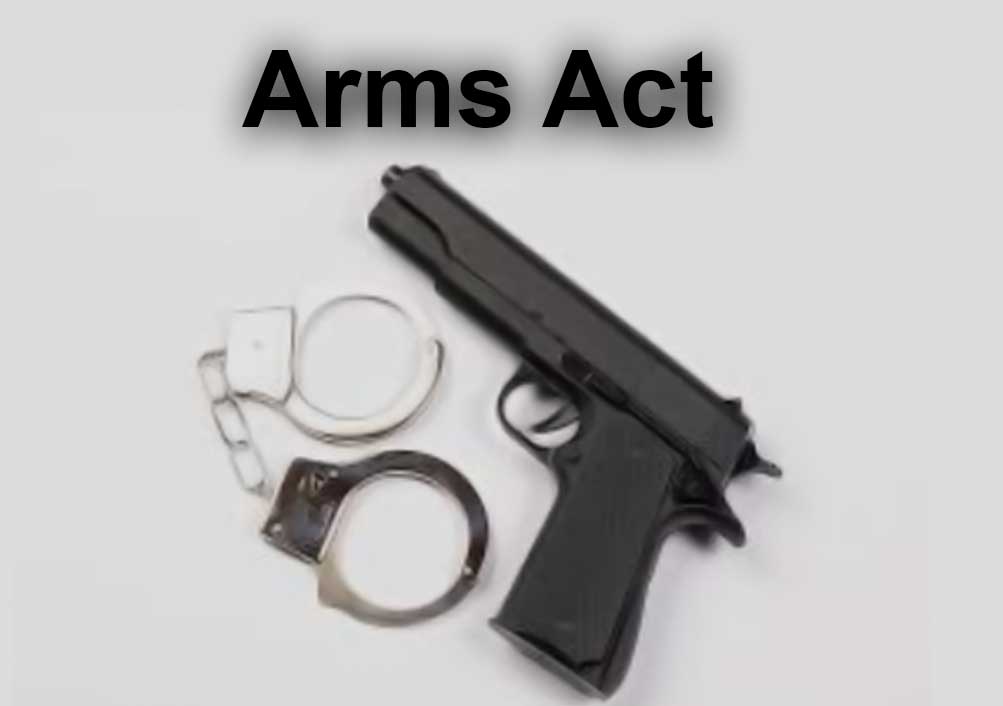In CWP No.32495 of 2019(O&M)-PUNJ HC- Licensing authority can refuse to grant licence only on grounds mentioned under Section 14 of Arms Act, 1959: P&H HC Justice Jaishree Thakur [29-04-2022]

Read Order: Manpreet Singh v. State of Punjab and Other
Monika Rahar
Chandigarh, May 09, 2022: The Punjab and Haryana High Court has recently held that the reasons assigned for dismissing an application for grant of licence for a firearm cannot be different than the reasons prescribed under Clause (a) and (b) of Section 14(1) of the Arms Act, 1959.
The Bench of Justice Jaishree Thakur further held, “The licensing authority can refuse to grant licence only on the grounds as enumerated in Section 14 of the Arms Licence Act, which are reproduced in the preceding paragraphs.”
It was also held that the licensing authority may differ with the report submitted by the incharge of the nearest police station on whether firearm licence is to be granted to the applicant or not but the same ought to be based on an independent enquiry done by licensing authority as per the provisions of Section (2A) of Section 13 of the Act and that too, by recording reasons in writing.
In this case, in November of 2016, the petitioner submitted an application before the competent authority for an arms licence along with a certificate of training as well as the medical report based on which the district police was called for by the third respondent.
The Deputy Superintendent of Police Barnala as well as SHO, P.S. City Barnala recommended the case of the petitioner for grant of arms licence, however, his application was rejected by the third respondent on the ground that the petitioner did not show or prove any extra-ordinary ground for such grant of arms licence.
When the second respondent was approached in an appeal by the petitioner, his appeal was dismissed by the said respondent on the ground that the petitioner failed to adduce any evidence to prove that his life was in danger and that he needed a weapon for his self-protection. Aggrieved, the petitioner filed the instant petition.
The case of the petitioner’s counsel was based on two broad submissions, the first of which was that the third respondent’s order rejecting the petitioner’s application for grant of the license, even after receiving recommendations to that effect by the Police officials, was an illegal and arbitrary action. Secondly, it was contended that the third respondent refused to grant the firearm on grounds which are not enumerated in Section 14 of the Act and therefore, the order rejecting the petitioner’s application for grant of licence was not sustainable at all.
On the contrary, the Counsel for the State argued supported the impugned orders by contending that the licensing authority may refuse grant of licence in case a person does not have any threat perception. Reliance in this regard was placed on the instructions dated March 31, 2010. The Counsel submitted that in the present case, the petitioner did not prove any extraordinary reason for grant of arms licence and therefore, there was no infirmity in the orders passed.
In rebuttal to the reliance placed by the State Counsel on the above-mentioned instructions, the petitioner’s Counsel cited the case of the High Court itself wherein while holding that instructions cannot override the statutory provisions of law, the Court had set aside the impugned orders based on the instructions of March 2010.
After considering these submissions, the Court perused the provisions of Section 14 of the Act and observed that importantly, clause (3) of Section 14 obliges the licensing authority to record reasons in writing where it refuses to grant a licence to any person and furnish to that person on demand a brief statement of the same, however, the supply of said reasons may be denied in public interest.
After looking into the reasons given by the concerned authorities for refusing to grant licence of firearm, the Court observed that the licensing authority can refuse to grant licence only on the grounds as enumerated in Section 14 of the Act and that the licensing authority may differ with the report so submitted by the incharge of the nearest police station but the same ought to be based on an independent enquiry done by licensing authority as per the provisions of Section (2A) of Section 13 of the Act and that too, by recording reasons in writing. Furthermore, the Court opined that the reasons assigned for dismissing an application for grant of licence cannot be different than the reasons prescribed under Clause (a) and (b) of Section 14(1).
In the instant case, the Court observed that the reason assigned by the licensing authority and the appellate authority that there was no evidence to prove that life of the petitioner was in danger and he needed a weapon for self protection were totally in variance to the report submitted by the police and therefore, it was incumbent upon the licensing authority to assign proper and real reasons, which they failed to comply with.
Regarding the instructions, the Courtobserved that it is settled law that any instruction/policy cannot override the statutory provisions and therefore, the reliance upon the instructions of Marc of 2010 were stated (by the Court) to serve no purpose.
Thus, the Court concluded that the reasons assigned by the Licencing Authority/Appellate Authority in the impugned orders while refusing to grant licence to the petitioner did not satisfy the mandatory requirement of Section 14 (3) of the Act and resultantly, the impugned orders were quashed and the writ petition was allowed. The respondents were directed to reconsider the application of petitioner for grant of arms licence in accordance with the statutory provision under the Act.
Sign up for our weekly newsletter to stay up to date on our product, events featured blog, special offer and all of the exciting things that take place here at Legitquest.




Add a Comment